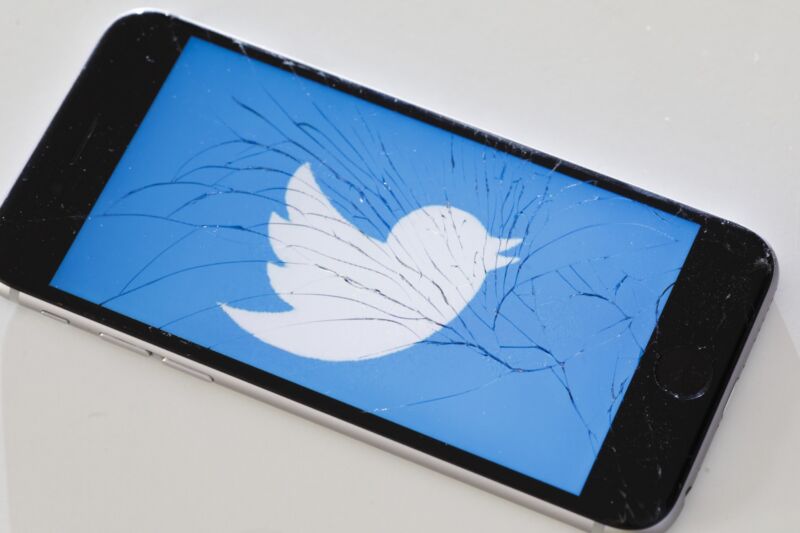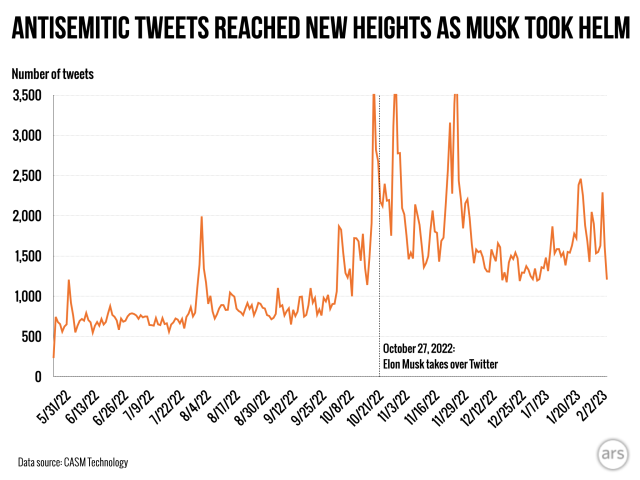
In the days after Elon Musk took over Twitter in October 2022, the social media platform saw a “surge in hateful conduct,” which its then safety chief put down to a “focused, short-term trolling campaign.” New research suggests that when it comes to antisemitism, it was anything but.
Rather, antisemitic tweets have more than doubled over the months since Musk took charge, according to research that I and colleagues at tech firm CASM Technology and the Institute for Strategic Dialogue think tank conducted. Between June and October 26, 2022, the day before Twitter’s acquisition by Musk, there was a weekly average of 6,204 tweets deemed “plausibly antisemitic”—that is, where at least one reasonable interpretation of the tweet falls within the International Holocaust Remembrance Alliance’s definition of the term as “a certain perception of Jews, which may be expressed as hatred towards Jews.”
But from October 27 until February 9, 2023, the average was 12,762—an increase of 105 percent. In all, a total of 325,739 tweets from 146,516 accounts were labeled as “plausibly antisemitic” over the course of our study, stretching from June 1, 2022 to February 9, 2023.

Finding antisemitism with AI
To identify plausibly antisemitic tweets, my co-authors and I combined 22 published hate speech-identifying algorithms into a single mechanism and used even more machine learning to see which combinations of decisions led to the correct result. We then passed through all tweets—over a million in total—that contained any one of 119 words, phrases, slurs, and epithets related to antisemitism.
No such process is perfect. We estimate our model to make a correct decision about 75 percent of the time. We also no doubt missed some antisemitic tweets not containing any of those 119 key words, as well as those taken down before early December when we collected the data.
We then used an algorithm to draw out 10 different themes of antisemitism seen in the tweets. Some centered around the use of specific antisemitic derogatory epithets. Others alluded to conspiracy theories concerning hidden Jewish influence and control.
Antisemitic tweets directed at Jewish investor and philanthropist George Soros warranted its own category. He was mentioned more than any other person in our data, over 19,000 times, with tweets claiming he was a member of a hidden globalist, Jewish, or “Nazi” world order.
Another theme were tweets defending the rapper Ye, formerly Kanye West, who had made a number of antisemitic remarks after he had his account briefly reinstated by Musk.
Our research, which has not yet been peer-reviewed, also found around 4,000 of the antisemitic tweets were focused on the Russian invasion of Ukraine. These variously claimed that the conflict was caused by Jews, or that Jews secretly caused the US to support Ukraine. They also contained direct antisemitism directed against the Ukrainian president, Volodymyr Zelenskyy, who is Jewish.
reader comments
405